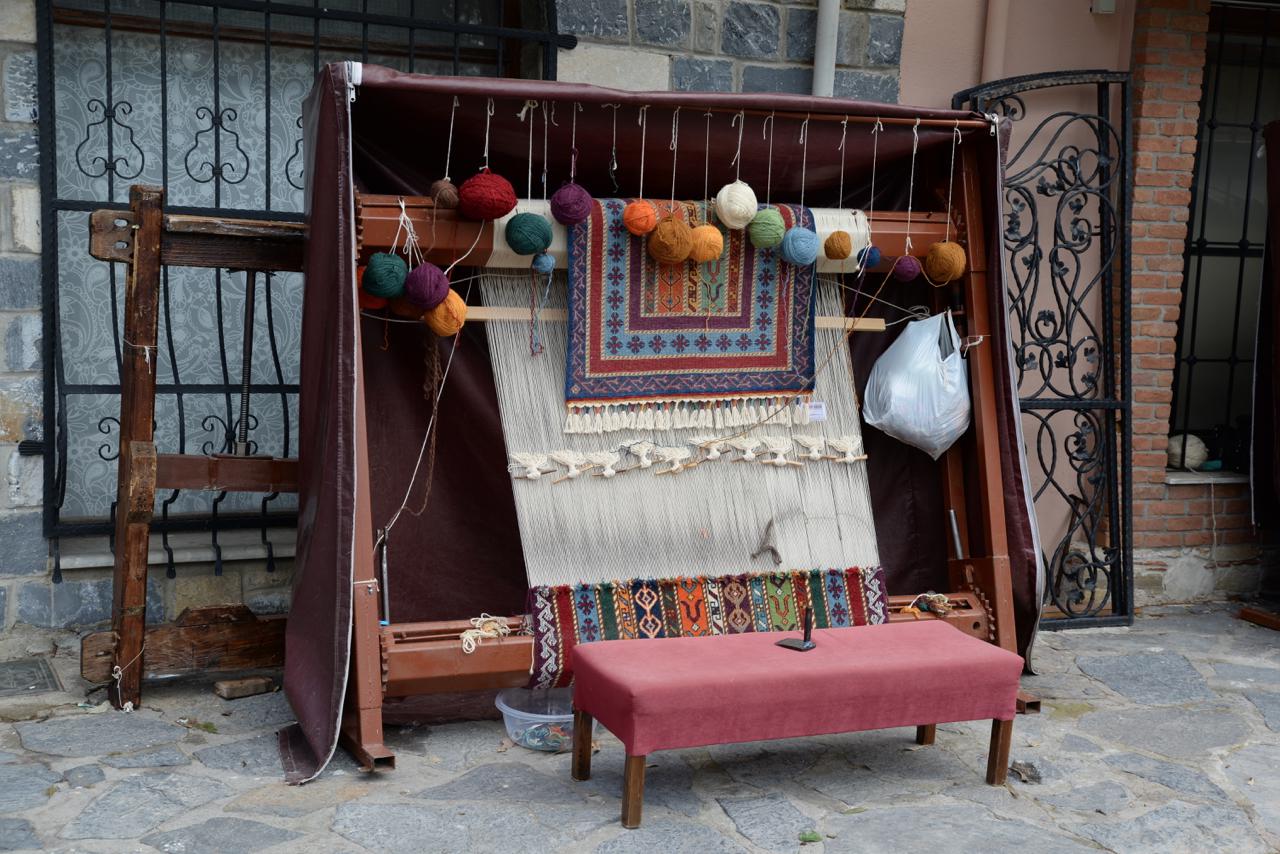Turkey Art & Culture
Carpet Weaving in the Turkish Village of Etrim


The small but charming Turkish village of Etrim gives Freya Herring the red-carpet welcome
We’re sitting cross-legged on ornate, aged carpets, the sunlight dappling our backs through grapevines above and around us, the smell of bread baking on a wood fire, and a Turkish grandmother cooking us lunch.
We don’t know it yet, but we’re about to buy two carpets from this beguiling woman in this magnificent scene. It may well be the best sales pitch ever – the setting does, after all, feel surreal – but it’s impossible to care while eating steaming hot zucchini-feta gözleme, made with home-grown vegetables and handed to us with such love and care. We’re in Etrim, a tiny village a half-hour drive northeast of Bodrum on the Turkish Riviera, but it feels hundreds of kilometres away from that bustling tourist hub.
Our hotel, the new LUX Bodrum, organised this day trip, arranging for us to be picked up at the resort and chauffeured to this historic village in the mountains.
We are greeted by Engin Basol, who grew up here. He tells us that his family, indeed all of Etrim’s residents, have been making rugs and carpets for hundreds of years – day in, day out.
We are introduced to his mother and house matriarch Unmahan Basol. The 60-year-old is wrapped in a beautiful, richly coloured cloth, befitting of a life spent devoted to fabric. She sits down on the floor to weave while we drink piping hot, red Turkish tea and watch in silence.
We see her hands twitching over yarn, the clicking sound repetitive and soothing, as Engin explains the history of carpet making. He also offers some insight into the process: about how the weaver does not prepare the pattern in advance; instead they work it out as they go, so each carpet is unique.
We hear about how only the women in the village are weavers, and how they forage for local herbs – wild lavender, meadow root and walnut shells – to dye the raw wool, which they card, spin and dye themselves.
“Just to make the material for one carpet takes five days,” says Engin. “We are dyeing them naturally with vegetables. We cannot repeat the colours.”
We learn about the significance of each piece: “A carpet is not just for walking on. It means a lot more than this. Every pattern has a meaning.”
If you see branches, he tells us, they represent the Tree of Life; scorpions symbolise pride; a sheaf of wheat infers abundance, wealth or fertility; and eyes seek to ward off the Evil Eye.
After we try a bit of weaving (which, of course, is far more difficult than it looks), we wander to a room filled with carpets – red, orange, blue and gold – from the floors and all the way up the walls, with one side wide open to a verdant garden.
Unmahan is already in the corner by the fireplace, rolling out dough and pressing in fresh zucchini and handmade cheese, before folding it together like a pillowcase and throwing each one on the flames. She shows us how to do it, and we make some too, with her guidance.
We eat the bread with Unmahan and are then brought an entire feast to eat alone – eggplant roasted and flecked with parsley; vine leaf dolma slicked with oil; crisp pastry cigars, and cool salted yoghurt – along with delicious, light, locally made wine.
Once sated, we are shown inside to look through the finished carpets, some of which are centuries old. We end up buying one aged 80 years, all rich golds and deep reds, and a pale blue kilim (a tapestry-woven carpet), too.
Engin asks if we want to see his village, and as we walk around its dry, crumbling walls, he introduces us to elderly ladies whose lives, too, have been spent working a loom.
Their homes are small and simple; white-washed walls and porches where the women sit outside looking out to surroundings that have barely changed in centuries. One of them gives us a roughly hewn chunk of olive oil soap – the only thing to wash your carpet with.
We wander off – soap on our hands, carpets under our arms – silently intoxicated by this quiet, special place.
Perhaps our souvenirs will bring this sense of calm to the organised chaos of our contemporary lives. Back home, we lay them out on the floor – and wait.
Latest Articles
Don't miss the latest from Luxury Travel
